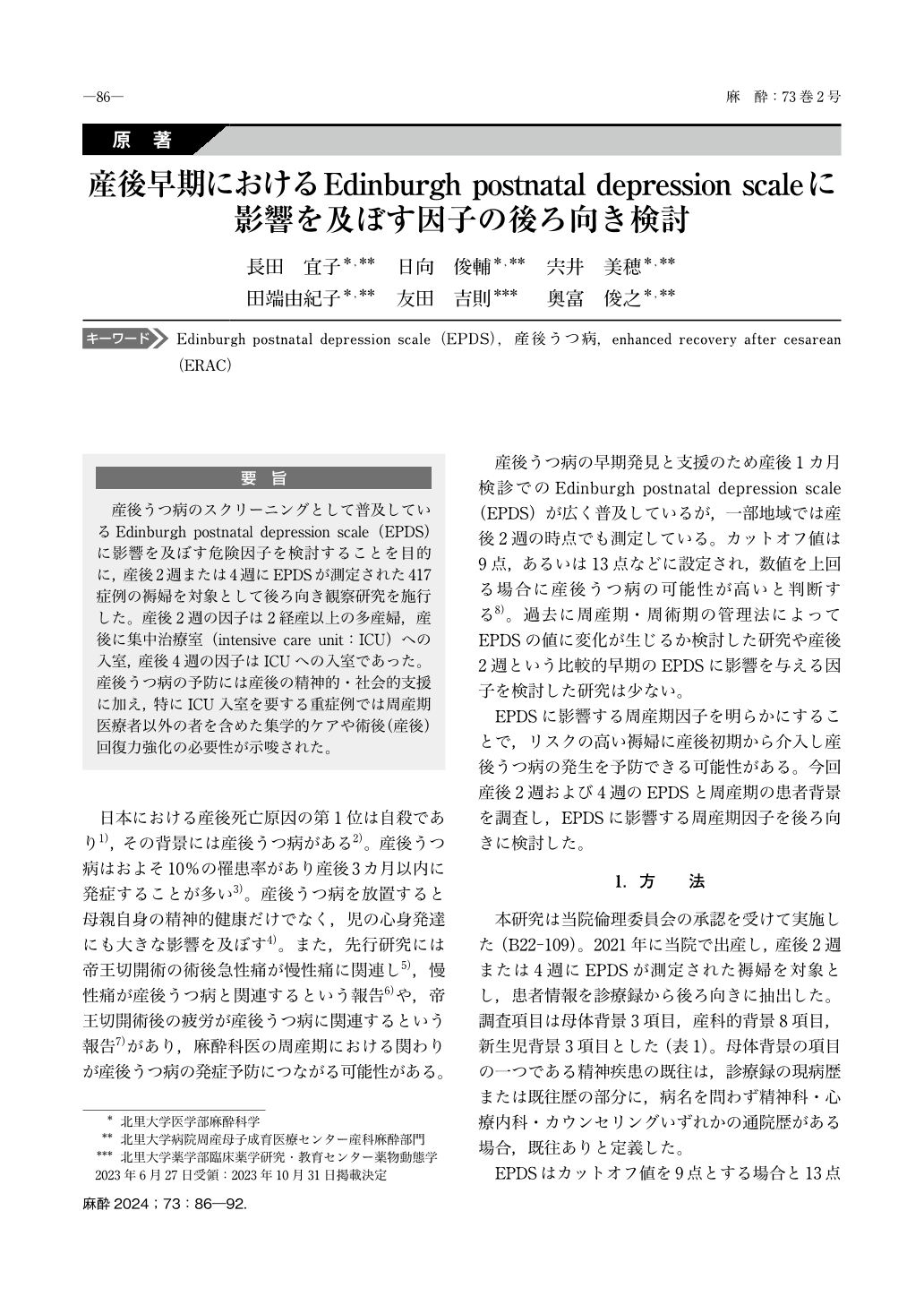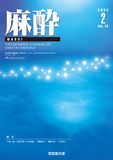Japanese
English
- 有料閲覧
- Abstract 文献概要
- 1ページ目 Look Inside
- 参考文献 Reference
要旨
産後うつ病のスクリーニングとして普及しているEdinburgh postnatal depression scale(EPDS)に影響を及ぼす危険因子を検討することを目的に,産後2週または4週にEPDSが測定された417症例の褥婦を対象として後ろ向き観察研究を施行した。産後2週の因子は2経産以上の多産婦,産後に集中治療室(intensive care unit:ICU)への入室,産後4週の因子はICUへの入室であった。産後うつ病の予防には産後の精神的・社会的支援に加え,特にICU入室を要する重症例では周産期医療者以外の者を含めた集学的ケアや術後(産後)回復力強化の必要性が示唆された。
Background:We investigated the relationships between patient demographic variables and a globally endorsed tool for identifying postpartum depression:the Edinburgh postnatal depression scale(EPDS).
Methods:We retrospectively analyzed the medical-record demographic data of 417 postnatal women who delivered at our hospital in 2021. We stratified the data that may affect EPDS at 2- and 4-weeks postpartum EPDS checkpoints into three categories:maternal profile, obstetric history, and neonatal conditions. Variables with a univariate analysis outcome of P<0.2 were subjected to a multivariate analysis.
Results:The risk factors at 2 weeks postpartum were multiparity(two or more)and admission to the intensive care unit(ICU), and the sole risk factor at 4 weeks postpartum was admission to the ICU.
Conclusions:Postpartum depression should be noted in women with a two-or-more multiparity status and in postpartum mothers admitted to an ICU. In addition to postpartum psycho-social support, multidisciplinary care including non-perinatal care providers is needed to prevent postpartum depression.

Copyright © 2024 KOKUSEIDO CO., LTD. All Rights Reserved.


